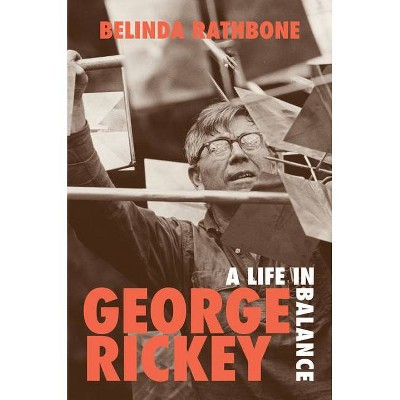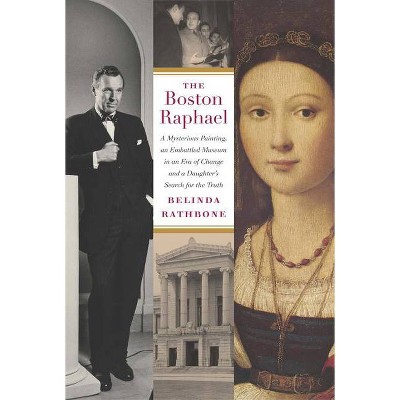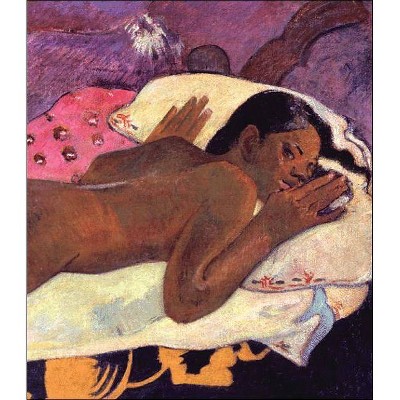George Rickey - by Belinda Rathbone (Hardcover)

Similar Products
Products of same category from the store
AllProduct info
<p/><br></br><p><b> About the Book </b></p></br></br>"The first biography of George Rickey, one of the greatest kinetic sculptors of the 20th century. His moving blades, squares, triangles, and circles can be found in museums and public spaces around the world, from bucolic landscapes to the bustling streets of New York City. Now, here is the story of his life, his times, and his vision of balance that created something new--sculpture that is defined by movement. Before his death in 2002, George Rickey created more than 3,000 works of art that move, including hundreds of major outdoor installations. His "useless machines," as he called them, achieved complete rotation, used multiple variations of the pendulum, and delighted viewers with the joyride effects of conical movement. George Rickey follows the life of a renowned artist--first a painter, then a sculptor--who found inspiration all around him--as a child visiting the Singer Sewing Machine factory managed by his father, in his adventurous youth in English and Parisian art studios of the 1920s, during his service as an engineer in the Army Air Corps during World War II, and later as a pioneer in academic art programs around the United States. But this is not only the story of a single artist's creativity and achievement but of Rickey's life in the larger context of the twentieth century: from Depression-era America to the upheaval of World War II, from the rise of New York as the world's art capital at mid-century to the tumultuous 1960s, when Rickey emerged as an international figure rubbing elbows with Alexander Calder, David Smith, Christo, and many others along the way. It is also the story of an exceptional marriage and of Rickey's charismatic, devoted wife, Edith Leighton, who managed her husband's career and reputation in the high-powered art circles of New York, Berlin, and California. Belinda Rathbone (author of The Boston Raphael and Walker Evans) has captured the spirit of an artist and his world as few have before. George Rickey: A Life in Balance is for any reader fascinated by the lives of artists, the creation of enduring art, or twentieth century modernism"--<p/><br></br><p><b> Book Synopsis </b></p></br></br><p><b>The first biography of George Rickey, one of the greatest kinetic sculptors of the 20th century. His moving blades, squares, triangles, and circles can be found in museums and public spaces around the world, from bucolic landscapes to the streets of New York City. Now, here is the story of his life, his times, and his vision of balance that created something new―sculpture that is defined by movement.</b> <p/>Before his death in 2002, George Rickey created more than 3,000 moving sculptures, including hundreds of major outdoor installations. His "useless machines," as he called them, achieved complete rotation, used multiple variations of the pendulum, and delighted viewers with the joyride effects of conical movement. <p/> <i>George Rickey: A Life in Balance</i> follows the life of a renowned artist―first a painter, then a sculptor―who found inspiration all around him―as a child visiting the Singer Sewing Machine factory managed by his father, in his adventurous youth in the London and Paris art studios of the 1920s, as an engineer in the Army Air Corps during World War II, and later as a pioneer in academic art programs around the United States when he embarked on the sculpture he became famous for. <p/>But this is not only the story of a single artist's creativity and achievement but of Rickey's life in the larger context of the twentieth century: from Depression-era America to the upheaval of World War II, from the rise of New York as the world's art capital at mid-century to the tumultuous 1960s, when Rickey emerged as an international figure rubbing elbows with Alexander Calder, David Smith, Christo, and many others. It is also the story of an exceptional marriage and of Rickey's charismatic, devoted wife, Edith Leighton, who managed her husband's career and reputation in the high-powered art circles of New York, Berlin, and Los Angeles. <p/>Belinda Rathbone (author of <i>The Boston Raphael</i> and <i>Walker Evans: A Biography</i>) has captured the spirit of an artist and his world in this deeply researched and engrossing biography. <i>George Rickey: A Life in Balance</i> is for any reader fascinated by the lives of artists, the creation of enduring art, or twentieth century modernism. Includes 30 photographs that document Rickey's life and work.</p><p/><br></br><p><b> Review Quotes </b></p></br></br><br><p>"Rathbone has written a model artist's biography. She deftly interweaves life and art, showing how Rickey's real-world experiences shaped his evolving aesthetic. She discusses [his art] with authority and insight..."<br>--<b><i>The New Criterion</i></b> <p/>"Rathbone's marvelously readable biography succeeds in bringing the Rickeys and the world in which they lived into timely focus."<br>--<b><i>Santa Barbara Independent</i></b> <p/>"In her enthralling biography, Belinda Rathbone traces George Rickey's long <i>Wanderjahre</i>--artistic, intellectual and erotic--across Europe and the United States, and shows how his dual training in art and engineering helped him re-invent kinetic sculpture for the postwar era. In the second half of the book, Rickey's tempestuous marriage to Edie Leighton provides a dramatic counterpoint to his growing professional success. From beginning to end, Rathbone adeptly explores the mysteries of art and love."<br>--<b>Pepe Karmel, author of <i>Abstract Art: A Global History</i></b> <p/>"If you're of a mindset (like I typically am) that biographies are dry (whereas memoirs aren't), you'll be captivated by Rathbone's exceptional prose and impeccable research."<br>--<b>Lorraine Kleinwaks, <i>Enchanted Prose</i></b> <p/> "Belinda Rathbone's <i>George Rickey: A Life in Balance</i> is far more than a portrait of the artist, although with deft strokes and canny perspectives this master biographer renders a fully satisfying account of an energetically lived life. But there is this, too: a skillfully told history of twentieth century art, from Cubism to Constructivism and beyond, woven into the life story of a brilliant and influential practitioner whose working years spanned six decades and whose circles of association reached across the globe. Read George Rickey to be inspired, educated, and immersed in what the sculptor called his 'box of colors, ' the stunning elements of his visual vocabulary Rathbone names: gravity, momentum, inertia, rotation, acceleration."<br> --<b>Megan Marshall, author of <i>Margaret Fuller: A New American Life</i> and <i>Elizabeth Bishop: A Miracle for Breakfast</i></b> <p/> "Deftly navigating a massive archive of personal letters, notebooks, and interviews, Rathbone humanizes George Rickey, an artist-intellectual whose kinetic sculptures are canonical in the history of postwar modernism. She presents the man intimately: his childhood in Scotland, his elite education, his years as a painter, his teaching, writing and worldly travels, his international recognition, and his friends and family, especially his spirited wife Edie. Rathbone's brilliant research and incisive narration basks in George Rickey's good company as well as his mechanical wizardry."<br> --<b>Wanda M. Corn, author of <i>The Great American Thing: Modern Art and National Identity, 1915-1955</i></b> <p/>"Belinda Rathbone has crafted a superb and deeply researched biography. She constructs a narrative that adroitly chronicles the life of the great kinetic sculptor George Rickey, a deeply erudite, intellectual, and creative man, and his tumultuous era. Equally satisfying and timely is Rathbone's fascinating portrayal of the powerful alliance between Rickey and his charming, strong-willed wife, Edie Rickey."<br>--<b>Gabrielle Selz, author of <i>Light on Fire: The Art and Life of Sam Francis</i></b></p><br>
Price History
Price Archive shows prices from various stores, lets you see history and find the cheapest. There is no actual sale on the website. For all support, inquiry and suggestion messagescommunication@pricearchive.us




















